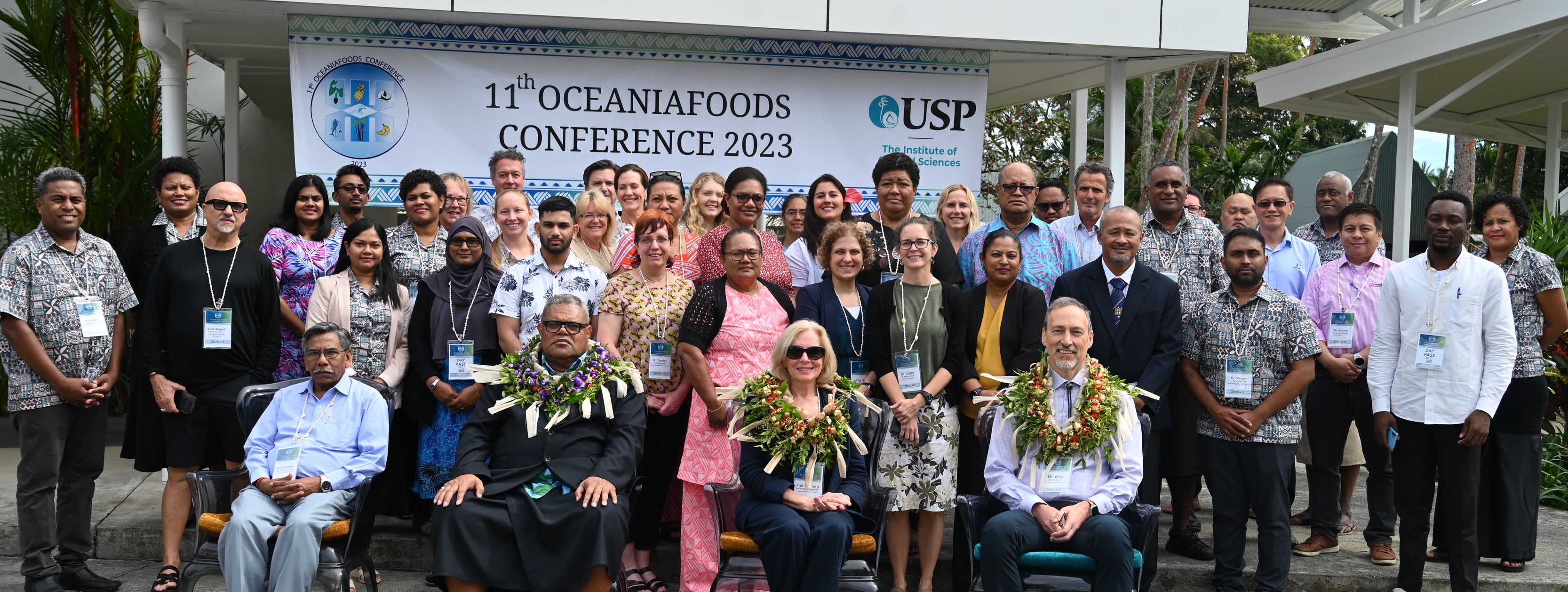Biodiversity and Food Composition in Oceania
August 16, 2023

Timely and reliable food composition data is important for evidence-based policy making, providing guidance for the agricultural sector to achieve national targets and Sustainable Development Goals.
This was highlighted by the Minister of Agriculture and Waterways, Hon. Vatimi Rayalu during the opening of the 11th OCEANIAFOODS conference held at the Pearl Resort, Pacific Harbour this week.
He said the conference is an opportune time to better understand the agro biodiversity of nutritionally rich foods and to discuss opportunities for successful food production besides monitoring and managing biodiversity in the face of climate change.
Hon. Rayalu said food composition data is necessary to underpin public health, individual health care, and a wide range of public policies, such as those related to the environment, sustainability, food security, and agriculture.
He highlighted the critical role of Fiji’s agriculture sector during the COVID-19 pandemic.
“During the pandemic, the Ministry of Agriculture ensured access to nutritionally rich foods, providing local substitutes for imported foods, providing employment and income generating opportunities in the local food sector.”
In addition, he stated that as a part of the food composition is the fight against Non-Communicable Diseases (NCDs), malnutrition and other nutrition-related diseases.
In Fiji, there is an amputation every 8 hours, which he stated is an unpleasant experience that negatively impacts the families' livelihoods and the country's productivity.
“People are losing their lives prematurely because of NCDs, when they could make significant contributions to society.”
And in the bid to address this problem, he said the Ministry is promoting and implementing school back yard gardening for fresh foods at primary and secondary school level.
“Our children and youths are our future and if we want to see a change in the nutritional eating habits than we must start with them and they will carry it right through,” he said.
He stated that in Fiji, the issue is more about the availability of fresh food than the lack of food.
He said processed food is more readily available and easier to obtain than fresh food, making it accessible to people regardless of their location. Therefore, it's important to educate children on the advantages of fresh food.
‘Our children are our future and if we want to see a change in the nutritional eating habits, then we must start with them so that they carry it right through,” said Hon. Rayalu.
He also mentioned that it is crucial to ensure that the quality of students that graduate from tertiary institutions takes up the responsibility of enhancing the agriculture sector to reach its full potential for the benefit of the nation.
The conference hosted food composition experts and students from across the Oceania and globally with delegates from diverse backgrounds, including research, public health, food technology and information technology.
Established in 1987, OCEANIAFOODS is the Pacific regional operation of INFOODS (the International Network of Food Data Systems), which was established in 1984 under the support of the Food and Agricultural Organisation of the United Nations (FAO).
OCEANIAFOODS aims to improve the quality, availability, reliability, and use of food composition data supporting indigenous peoples’ food and knowledge systems.
-Ends-
